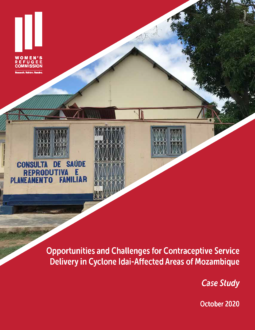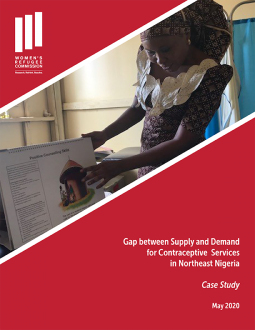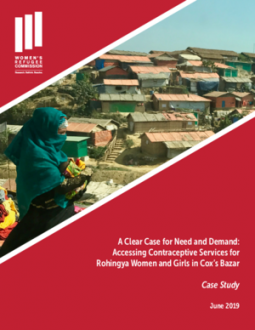
Opportunities and Challenges for Contraceptive Service Delivery in Cyclone Idai-Affected Areas of Mozambique
PublishedIn December 2019, the Women’s Refugee Commission conducted a case study of contraceptive service delivery in Cyclone Idai-affected areas of Mozambique, which aimed to document the important work that the government of Mozambique, its partner organizations, and other stakeholders were undertaking to provide contraceptive services and post-abortion care to affected communities, including internally displaced persons and host communities, to highlight challenges, and to document how some of these challenges were addressed.
The case study employed mixed research methods, including key informant interviews with Mozambican Ministry of Health personnel, United Nations Population Fund (UNFPA), and nongovernmental organization health and sexual and reproductive health program managers; health facility assessments, including sexual and reproductive health knowledge and attitudes surveys with service providers; focus group discussions with affected communities, including internally displaced persons; and a review of service delivery data from the Mozambican Ministry of Health.
This study is the third installment in a series of three case studies documenting contraceptive service delivery in humanitarian settings.
Full Report
Related Documents
Translations
Additional Research
- Global Snapshot of Contraceptive Services across Crisis-Affected Settings
- Contraceptive Services in Humanitarian Settings and in the Humanitarian-Development Nexus, Including during the COVID-19 Pandemic – A Global Landscaping Assessment Report Summary (Two-Pager)
- Disruptions and Adaptations: The Effects of COVID-19 on Contraceptive Services across the Humanitarian-Development Nexus
- Gap between Supply and Demand for Contraceptive Services in Northeast Nigeria
- A Clear Case for Need and Demand: Accessing Contraceptive Services for Rohingya Women and Girls in Cox’s Bazar



